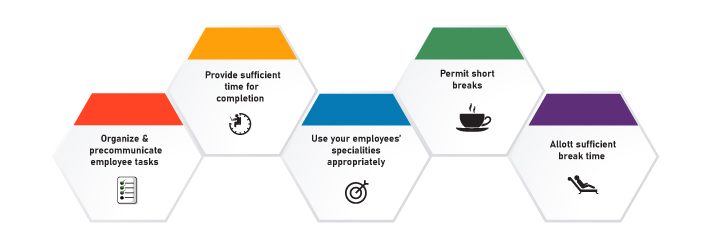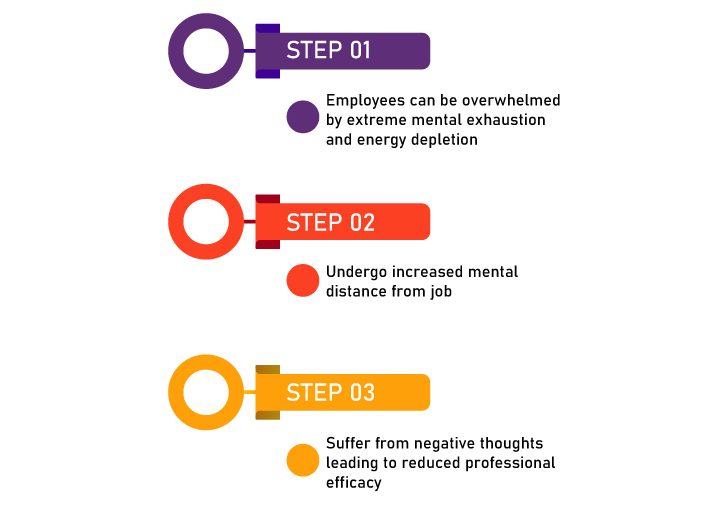Workplace stress is something real. A lot of people struggle with this, and employers need to address the problem if they want a thriving workplace that nurtures the employees. This article points to 11 factors that contribute to occupational stress.
Job Insecurity
This one is probably the most prominent demotivator. If your employee feels that they may be given a discontinuation notice any day, then they can never perform to the best. The employee will feel miserable and can never become a company’s asset.
An insecure employee is always hunting for new opportunities remember that!
Work Intensity
Be sure to keep your employee’s workload in check. An overworked employee can have really high stress levels, which can truly have a negative impact on them. Sure, at times, the company needs to go all in.
But when such situations arise, ensure that the employee is sufficiently compensated after that. Maybe give them some monetary compensation or give them leaves to relax.
Underworked employees can also feel stressed since it can get them to question their competence. Find the right balance- that’s what a great employer does.


Stagnancy
If your employees aren’t growing at their job, it’s natural for them to feel stress. Monotony can make anyone question their career choices, and you should address these concerns as a responsible employer.
Conduct sufficient training and work on building up your employees as your valuable assets.
Floating Expectations
Have a fixed JD for your employees. Uncertainty can be a great contributor to stress. Don’t expect your employees to take up job roles that aren’t meant for them. Sure, you may ask them for a favor occasionally but don’t have unrealistic expectations that your employee should do anything you ask just because you pay them.
Managerial Methods
At entry and mid-levels, employees don’t work for the company and rather work for the managers. Doesn’t matter how great a company is; if the resource isn’t comfortable with the manager, they are bound to feel stress.
Auditing the managers and their management styles goes a long way in solving this concern.


Work Hours
Respect the fact that your employees have a personal life. Don’t expect them to work outside of the work hours.
You’ll surely create miserable resources that’ll be looking for the next opportunity that gets them to flee from your organization.
Technology
Don’t save up on money that can make your employee’s life easy. Organizations that care for the employees are highly appreciated. If there’s a new technology that can save your employee’s effort, then that’s worth investing in.
However, don’t be updating to new things every other day. Learning new technology requires time and patience. It can become really frustrating for the employees if the moment they settle with something is the moment you expect them to learn something new.
Personal Problems
While it is expected that people don’t mix up their personal and professional life, it is rarely ever possible. If any employee is struggling personally, the organization may see the impact. Personal problems can be a significant contributor to an employee’s stress levels.


Harassment
A harassed employee is a stressed employee. Not all harassment is noticed, and sometimes employees have to suffer in silence. This is especially common for female employees who face physical and sexual harassment at workplaces. That can be a contributor to increased stress levels.
Work-Life Balance
If work becomes the pivot that guides a person’s life, then that can easily become a stressful condition. Allow your employees to have a life outside of work. Do this and watch your workforce shine and bloom.
No Feedback
Always let your employees know what they are doing. No communication from the managers can leave them in the air thinking whether they are an asset or a burden for the organization.
Always let your employees know where they stand and prevent them from developing unnecessary stress.




